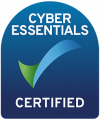Tech Terms That Every Business Owner Should Know (Part 1)
Tech Terms That Every Business Owner Should Know (Part 1)
IT doesn’t necessarily have to be a daunting and alien subject that we’d better avoid because we don’t understand – especially in a business environment. No matter what your business is – whether it’s a shoe shop, an accountancy firm or an online flower shop, some IT support may come in handy.
And since we’re a bit ‘in to’ IT we thought we’d put together a short list of some IT terms you should be aware of. Because knowing what we’re taking about can make running a biz a bit less painful and a bit more time-efficient.
Storing Data
1. Servers
A server is a computer that stores your company’s data – that can be websites, e-mails, medical records, customer or suppliers addresses and billing information, etc. Information doesn’t just float around in the virtual space, in order for it to be virtually available, it needs to be stored somewhere first.
Think of it as a chest of drawers where you store the business equivalent of socks, old letters, books… pretty much anything. It’s also centralised and it constantly backs up the data on multiple hard drives to prevent any data loss.
So why does your business need its own ‘chest of drawers’?
The answer is simple – ownership & security
It’s you and those you authorise who can have access to the data you store – you have full control over it. A server will allow you to control who gets access and to which drawer – you don’t necessarily want a HR assistant to have access to client’s bank details, or accounts to see employees’ personal information.
Plus, having your own individual server means a lower likelihood of it getting hacked and your data being compromised. (Bear in mind that having a server would require having an IT guy to look after it).
2. Cloud storage
The idea here is the same – it’s another place to store your data but online. It’s like your business’s little corner in the web. This means that you can use online services (Dropbox, AppFog, Windows Azure, etc) under whose roof to store whatever you need.
The positive side here is that it’s very easily accessible from anywhere (a train, a foreign country, a sunny beach) and from anything (phone, tablet, public PC) as long as you have internet connection.
The only trouble though is – what would happen if one day your cloud provider goes bust and closes down?
3. Web hosting
Storage again, but this is where your website and business e-mails are stored. Those too, like your business ‘socks’, need to be put in safe keeping somewhere. Usually, it’s more practical to hand this over to a third-party company to manage it for you – it will save you a whole lot of trouble. You’ll have access to the website and you’ll be able to manage its content.
- Web hosting falls into a few categories:
- Shared – this is when your website & e-mails share a drawer with other websites in somebody else’s dresser.
- Dedicated server – is when your own server hosts your own website and e-mails.
- Hosted Exchange – this is when a company, e.g. Microsoft, provides you with space in a server where you store e-mails and manages it for you. The deal here is that you’ve got what you’ll have if you have your own server but without having to manage it, in other words, somebody else safeguarding your wardrobe.
There’s so much to cover here that we can’t cram it all into one post. So keep an eye out later in the week for part 2 – managing data.


